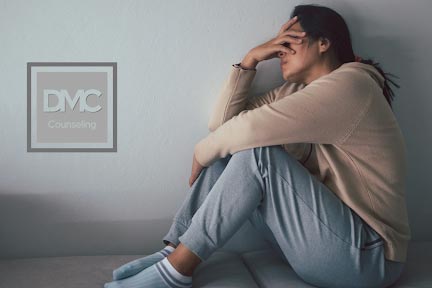Have you considered getting help for your marriage but have some concerns about the process? There is no reason to be nervous about marriage counseling.
If this sounds like you then you’re in the right place!
In this article, we will talk about 11 of the most common reasons why people feel nervous about marriage counseling and why there’s no need to worry at all!
Table of Contents:
- Concern 1: What If Our Therapist Chooses My Partner’s Side?
- Concern 2: What If Our Counselor Tells Us We’re Hopeless?
- Concern 3: What If Counseling is the Beginning of the End for Our Relationship?
- Concern 4: What if Others Find Out About What We Talked About in Therapy?
- Concern 5: What If Talking About Our Problems Makes Them Worse?
- Concern 6: What If We Only Fight the Whole Time?
- Concern 7: What If It’s Too Late to Start therapy?
- Concern 8: What If the Therapist Judges Us?
- Concern 9: What if We’re Forced to Do Corny Exercises?
- Concern 10: What is Therapy is a Waste of Time and Money
- Concern 11: What Does a Good Therapist Do?
Let’s jump right in!
Concern 1: What If Our Therapist Chooses My Partner’s Side?
One of the most frightening aspects for many people in couple’s therapy is sharing their most personal problems only to have their marriage therapist choose their spouse’s side.
But rest assured, a therapist has no interest in making judgments about who is right or wrong. Rather, the therapist’s goal will be to empathize with the perspectives of both partners and to help find mutually agreeable solutions.
The most important thing to remember is that the best results come from a team effort—not a winner takes all situation. Your therapist is committed to helping both partners grow and improve together.
A good marriage therapist will always be on the side of the marriage—no matter what troubles and difficulties you are experiencing together as a couple. Any form of judgment would be counterproductive and get in the way of true progress.
If you’ve decided marriage counseling might be right for your marriage, then you shouldn’t worry about this bias from the marriage counselor.
Concern 2: What If Our Counselor Tells Us We’re Hopeless?
When people think of going into therapy for marriage concerns, they sometimes imagine a counselor sitting behind the two couples on screen and saying things like “Aaaah! You both have some serious problems!” As if there was no way you could work those behavioral patterns out together.
However, this is hardly ever the case! In fact, most therapists are trained in how to help couples learn healthy communication skills and, as a result, prevent them from reaching the point of needing couple’s therapy in the first place!
A good counselor will help demonstrate that there ARE solutions available when you feel like there aren’t any options left. The approach of working together and strengthening your bond is likely what’s required to save it!
Some couples may think they have already tried every option possible, many times over, but when entering into marriage counseling the stars may align for them in ways they never expected. In some cases, their therapist works alongside them in pointing out issues they haven’t considered before and different ways of resolving them.
As long as both partners are willing to work together to understand and improve the quality of their relationship, there will always be hope in the relationship.
For information on healing and rebuilding more specific marital issues, such as infidelity, check out our page on Infidelity Recovery Counseling → HERE
Concern 3: What If Counseling is the Beginning of the End for Our Relationship?
There is a common misconception that going to marriage counseling means you’re at the brink of divorce. Many people sadly put off talking with a marriage counselor because they fear that it means the beginning of the end of their relationship. This could not be further from the truth and shouldn’t make you nervous about marriage counseling!
In reality, marriage counseling should be considered– and used — as an investment in your future.
Creating a healthy marriage and communicating effectively can be challenging, especially if you grew up without learning these skills. It’s easy to assume that it will get better — but many couples do not know where or how to start addressing problems when frustration becomes too great.
At times like this, marriage counselors can help pave the way by helping you communicate with your partner and recognize potential issues BEFORE they begin to harm your marriage.
The bottom line is that marriage counseling isn’t just about dealing with issues in your marriage but also working to prevent them.
For Example: Sometimes people take their car into the shop after it was in a major accident. This also happens in marriage counseling, but just because you’re wanting to speak with a therapist doesn’t mean your relationship is totaled.
For many of the healthiest marriages, going to the therapist is a good way to get a tune-up or an oil change to ensure the relationship continues running well.
It is also important for couples to come into therapy while they still feel hopeful about their relationship so that both partners can be engaged in positive ways during sessions together. This way, when solutions are presented as something achievable, it’s easier for people to implement them and make the changes needed between themselves!
Concern 4: What If Others Find Out About What We Talked About in Therapy?
There is no reason to worry about your marriage counselor sharing information about your discussions. Professional therapists are required to maintain high confidentiality standards.
What you talk about in marriage counseling is locked away in the marriage counselor’s office, along with any written notes taken by the marriage counselor during your sessions.
There are a few mandated reporting exceptions to these confidentiality practices. These exceptions usually have to do with abusive situations, or when someone expresses the intention to hurt themselves or someone else. But don’t worry-your marriage counselor will disclose these exceptions before you begin therapy.
Concern 5: What If Talking About Our Problems Makes Them Worse?
Many people fear that speaking honestly about problems in the marriage counselor’s office may actually make the relationship worse.
In reality, staying silent, or sweeping issues under the rug, is more likely to prolong serious conflict than addressing it head on.
It’s for this reason many couples seek marriage counseling in the first place — to be able to talk about their struggles without criticizing each other in the process.
Discussing unaddressed problems can be painful and emotionally overwhelming at first but re-opening lines of communication is an essential part of healing and experiencing a relationship that is happier, healthier and more fulfilling in the long run.
Check out this great video resource on the benefits of speaking honestly about our problems in marriage counseling AND what we might learn if we do → HERE
Concern 6: What If We Only Fight the Whole Time
Many couples who are nervous about marriage counseling think that they will just end up fighting throughout the entire session.
The fact of the matter is, conflicts happen — whether or not you’re married. The good news is that professional marriage counselors are trained to navigate conflict, reduce blame, shame, guilt and get at the heart of what each person is saying.
When you come to see a marriage counselor, you are bringing your emotions and experiences into an environment established for the purpose of growth.
Your counselor is trained in methods designed to create feelings of safety so that you can feel confident in talking about hard things with your partner without feeling attacked or judged.
In fact, learning how to communicate openly and kindly with each other is an important part of therapy, so that when you leave office hours together, you have tools for addressing conflicts in a positive way.
To get a head start on learning effective communication strategies check out this video on using “I” statements vs “you” statements → HERE
Concern 7: What if It’s Too Late to Start Therapy?
The answer to this question is it’s never too late because there is no time limit on learning how to make your relationship healthier!
A marriage counselor is trained in the latest research-based therapeutic techniques that have been shown to be successful in even the most strained relationships. For this reason, our marriage counselors expect the best when any new couples come in to talk.
In some cases, marriages can be saved simply by improving communication between partners — which is possible during the first few therapy sessions.
Many couples come into the therapy office feeling hopeless, only to find that there are many things that can be done to heal wounds and increase the overall satisfaction in the relationship.
Concern 8: What If The Therapist Judges Us
Marriage counselors have seen hundreds of couples, many of whom have struggled with the same set of issues your relationship is facing. This often means that the therapist has likely heard it all before AND already knows the tools to help solve the problems your relationship is facing.
Therapists are experts at empathizing and creating a space where both parties feel validated and understood so that you can come together as partners on common ground.
Without these two foundations, they would simply be unable to help people move forward in their relationship, as trust is one of the most important factors when it comes to supporting healthy relationships.
You can feel safe going to see your marriage therapist knowing that you will have the space to talk about your relationship without fear of judgment.
Concern 9: What If We’re Asked to Do Corny Exercises
When you go to marriage counseling, it is possible that your therapist will ask you and your partner to do exercises, such as taking turns listing all of the qualities you love about your partner, that may push you out of your comfort zone.
However, In the end, all of these assignments will help you and your spouse develop the tools you need to communicate in a safe and healthy way.
Some therapists, on the other hand, choose not to use certain exercises with clients at all because they don’t feel it would be appropriate or helpful for their client’s unique relationship goals.
If you believe this is the case for your relationship, make sure you tell your therapist how you feel if they suggest an approach that doesn’t work for you.
Concern 10: What If Marriage Counseling Is a Waste of Time and Money
No one can force you to invest in your marriage and it’s important for anyone considering couples counseling to remember that. The decision to do so is a thoughtful investment in the future of the relationship that requires mindful consideration about whether or not it will benefit your situation.
Traveling down the road of life together takes work, but there are plenty of proven methods for improving your relationship. Professional help shouldn’t be ruled out as an option if improvement is what you’re looking for.
Concern 11: What Does a Good Marriage Counselor Do?
There is no reason to be nervous about marriage counseling! A good marriage counselor will help both partners learn skills for making their marriage better.
The skills taught in counseling are not just for one partner to practice on his or her own but rather they are for both partners to use together in the ongoing work of keeping love alive in the marriage.
The focus will be on improving communication, problem-solving, conflict resolution, and forgiveness— all important elements that lead to better relationships between husbands and wives.
If you’re considering marriage counseling, reach out to us today and learn more about how we can help your relationship heal and flourish.
To get the answers to the most frequently asked questions when it comes to counseling, such as “What Does the First Session Look Like” check out our page → HERE
That brings us to the end of this blog on why you shouldn’t be nervous about marriage counseling.
Which concern addressed did you find most helpful?
Let us know in the comments!





